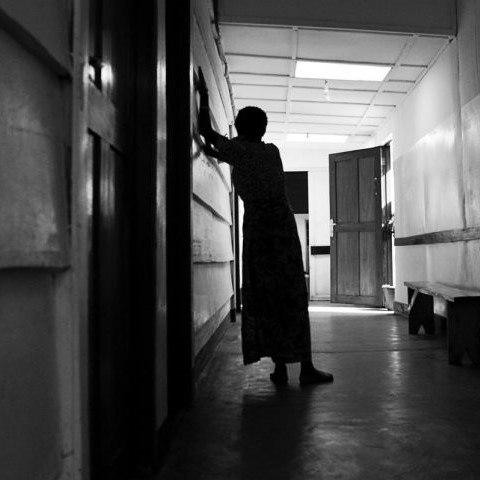Peace is not just the absence of war. Many women under lockdown for #COVID19 face violence where they should be safest: in their own homes. Today I appeal for peace in homes around the world. I urge all governments to put women’s safety first as they respond to the pandemic. – Antonio Guterres, April 6, 2020
This call followed swiftly on the UN Secretary General’s call for Covid-19 ceasefires. With the exhortation to states to ensure women’s security during the COVID-19 restrictions, the UN Secretary-General not just echoed his own ceasefire call, but echoed concerns from women’s rights activists globally about the potential adverse impact of COVID-19 restrictions on women’s experiences of violence and inequality. We do not yet know the full impact of COVID-19 restrictions on victims of violence within the home and their survival strategies, for women human rights defenders, for gender rights activists and women with insecure emigration status, for women IDPs and refugees, and for women seeking inclusion in ongoing peace processes. Nevertheless, the prominence of the Secretary-General’s call is important as it indicates the ways in which the UN now sees intimate partner violence (IPV) as a matter of international and intergovernmental concern, which is itself a paradigm shift.
Political Settlements Research Programme (PSRP) research on gender-based violence and its relationship to conflict includes useful insights on the likely impacts of the COVID-19 restrictions in conflict-affected settings. The PSRP blog distils some of the most pertinent insights from PSRP research, drawing in particular on Jessica Doyle and Monica McWilliams pathbreaking longitudinal study of the impact on women’s experiences of intimate partner violence (IPV) of the formal end to conflict in Northern Ireland; Aisling Swaine’s comparative study of the evolution of conflict-related violence against women before, during and after conflict in Liberia, Northern Ireland and Timor Leste; Fidelma Ashe’s report on the qualitative impact of the end of conflict on LGB&T security in Northern Ireland; and PA-X findings on gender provisions in peace agreements.
1. In violently divided societies, alienation from police will further reduce women’s capacity and willingness to report domestic violence.
In 1993, McWilliams’ initial study on the impact of ‘The Troubles’ (as Northern Ireland’s conflict was euphemistically called) on women’s experiences of domestic violence identified a high degree of alienation from the police, in particular from women in the minority Catholic/Nationalist/Republican community. This alienation was a key factor in discouraging their reporting of domestic violence.
The updated 2018 study found a dramatic improvement in confidence in the police by domestic violence survivors. Nevertheless, the high degree of control exerted in IPV relationships continued. Indeed, the study identified a specific perpetrator strategy of ‘social isolation’ of victims. For example, 54 of the 63 study participants (86%) reported that their partner had prevented them from seeing or contacting their families and friends. Forty-eight participants (of 63; 76%) reported that their partner needed to know their whereabouts at all times. More than three quarters of participants in the 2016 study (49/63; 78%) reported that IPV had disrupted their income-generating activities such as employment and education, as well as hobbies and leisure activities. The controlling behaviour of the perpetrator and impact of abuse had serious negative effects on the physical and psychological well-being of participants.
The compounding effects of social isolation as a perpetrator strategy, aligned to alienation from the police in many conflict-affected settings, need to be factored into any response to COVID-19’s gendered impact.
2. The further empowerment of security forces in conflict settings can exacerbate gendered and sexual harassment.
The further empowerment of state actors to enforce COVID-19 restrictions can heighten the forcible regulation of gender norms. Research conducted during the Troubles in Northern Ireland found gay and lesbian young people frequently reporting gendered forms of harassment. For example, in instances of police harassment, sexuality was often focused on as a ‘vulnerability’, and in particular with regard to people from Catholic/Nationalist/Republican communities, to be used to push people to become ‘informers’. Informing was in itself a lethal activity given that informers were routinely killed by the IRA.
Fidelma Ashe’s study of LGBT security in postconflict Northern Ireland reveals a situation where LGBT communities still feel insecure. Even new generations are affected by some of the historic distrust of institutions such as police, with respect to past actions.
3. In violently divided societies, community ‘self-policing’ heightens scrutiny of gender non-conforming behaviour. Also, additional surveillance creates new opportunities for ‘entrepreneurial’ harassers.
Restrictions imposed by COVID-19 do not only involve formal state regulation, but also a high degree of community self-regulation. PSRP research has found that heightened community self-policing, which is common in conflict-affected settings, manifests in gendered ways. For example, gender non-conforming behaviour can be exploited by non-state armed groups to coerce individuals – fearful of disclosure – into cooperating with them. Moreover, gender non-conforming behaviour – including IPV victims leaving violent households – can be targeted for violent reproach.
Swaine’s comparative research found that conflict can present increased opportunity for state and non-state actors to enact violence on a personal motivational basis, in the absence of or alongside ordered militarised violence. For example, in Northern Ireland and Timor-Leste there is evidence of armed and civilian actors enacting sexual abuse on children and women for personal motivations, enabled by increased contact opportunities resulting from increased surveillance, such as checkpoints.
4. ‘Don’t you know there’s a war going on?’ Crises typically redirect police attention and resources from gender-based violence to ostensibly more urgent matters.
In the context of ongoing ethnic violence, McWilliams’ initial study on IPV in Northern Ireland in 1993 found several domestic violence victims and survivors reporting police disinterest and deprioritisation of their experiences. There is potential for the policing priority of COVID-19 restrictions, coupled with ongoing conflict issues, to risk the further deprioritisation of IPV, unless pro-actively addressed.
5. Crafters of peace agreements typically view issues such as IPV as outside their purview, resulting in a missed opportunity to improve institutional responses.
Despite growing reference to gender and gender-based violence in peace agreements, in line with the WPS agenda, the PA-X database reveal very few references to IPV in peace agreement texts (the only clear examples of inclusion are found in Colombia, Yemen, Zimbabwe). PSRP gender work on peace agreements identifies how the peace agreement texts establish certain path dependencies as to how the issues and institutional reforms that are prioritised in the postconflict setting. With the UN’s COVID-19 ceasefire initiative, it would be important to both understand how forms of violence against women are included in the terms of the ceasefire, and to understand how addressing IPV can be made a priority for any post-agreement period.
6. Generalised restrictions can be used to target gender non-conforming behaviour.
Outside of conflict contexts, we see evidence of undemocratic leaders using ‘crisis’ to sharpen and toughen measures against perceived ‘deviance’ from gender norms. For example, Hungarian lawmakers have commenced an effort to end legal recognition of gender reassignment amid the COVID-19 crisis.
Such dynamics are often very much shaped by conflict divisions in conflict-affected or post-conflict contexts. Northern Ireland witnessed efforts by some political leaders to subvert long-awaited and hard won liberalisation of abortion provision due to COVID-19 restrictions. Liberalisation of access to abortion in Northern Ireland was finally secured through Westminster legislation last year and was due to commence at the beginning of April. Some Executive members, including the Minister for Health, sought to postpone provision until the end of the COVID-19 restrictions. These efforts were only reversed by determined action by campaigners compelling health authorities in Northern Ireland to make formal provision for abortion by telemedicine in line with provision with the rest of the UK and Ireland.
7. Generalised feelings of insecurity can further fuel militarism, with gendered consequences.
PSRP research in Northern Ireland found that the increased availability of guns due to the conflict – both legally and illegally held guns – resulted in more fatal incidents of domestic violence in the jurisdiction as compared to the rest of the UK and Ireland. Similarly, the broader demilitarisation of society associated with the peace process positively correlated with a reduction in the use of firearms in domestic violence. Dramatic increase in gun sales in places like the United States, for which we have data, point to further worrying trends in responses to the insecurity engendered by the COVID-19 pandemic. There is also evidence that organised crime is flourishing as organised criminals seek to step into COVID-19 service provision voids, in countries as diverse as Italy, and Guatemala. These moves are often closely associated with these groups exerting forms of local community control, which are underwritten by increased arms that bring threat of violence into communities and even homes.
Conclusion
Women’s rights activists are rightly calling attention to the uneven gendered consequences of the COVID-19 pandemic and efforts to halt its spread. Whilst the COVID-19 pandemic presents a new and unprecedented global challenge, the gendered effects of crises and complex emergencies are not new. We have a robust evidence base from which to anticipate gendered inequities and to be vigilant against them.
This article was originally published on the PSRP Blog
Dr Catherine O’Rourke coordinates PSRP Gender Research and is Director of the Transitional Justice Institute at Ulster University, a partner in the PSRP Consortium. PSRP Consortium is a partnership with University of Edinburgh’s Law School.










Comments by